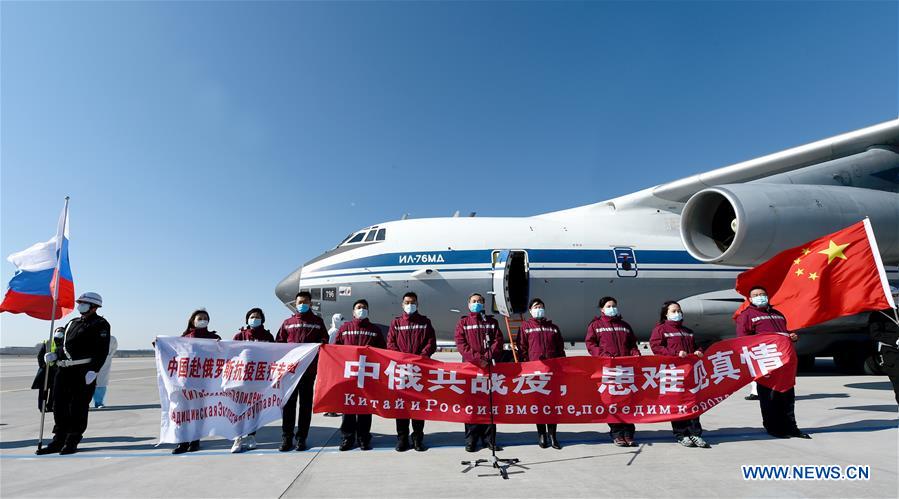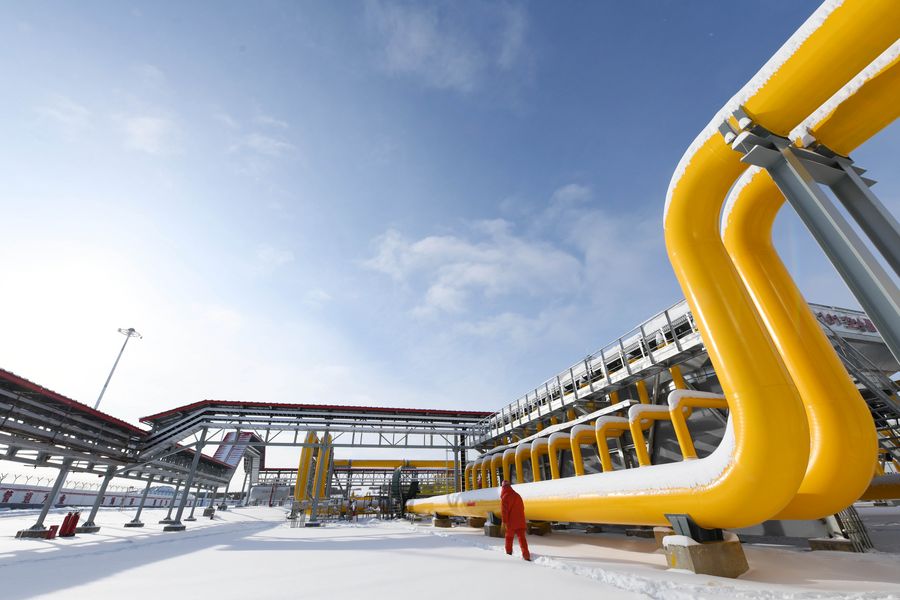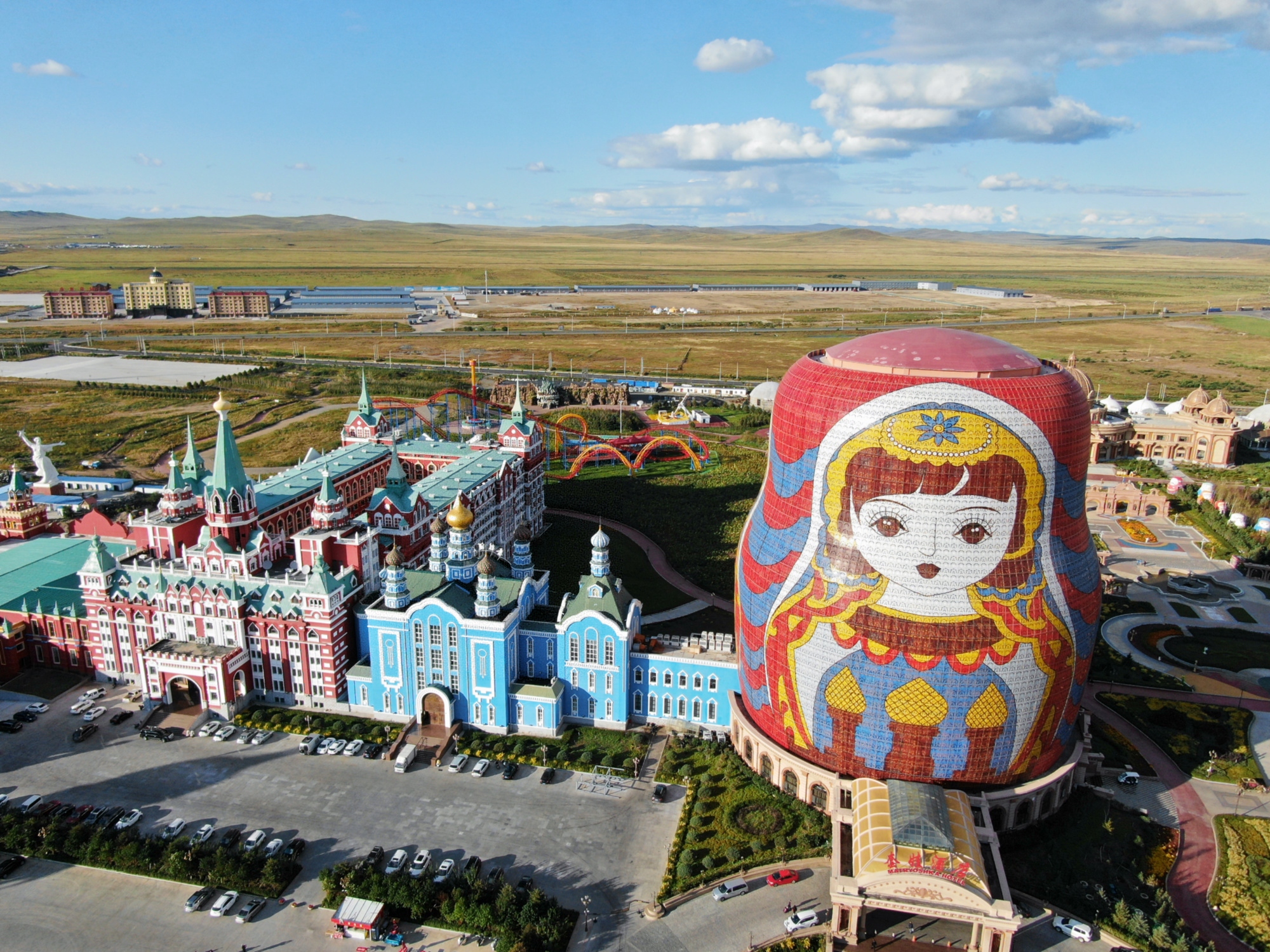Friday marks the one year anniversary of China and Russia upgrading bilateral ties to a comprehensive strategic partnership of coordination for a new era. The emergence of COVID-19 is upending relations between countries, but experts believe the pandemic is actually bringing China and Russia closer.
A friend in need is a friend indeed
China and Russia have been helping and supporting each other since the outbreak of COVID-19. Russia was the first country to send medical experts to China and China provided Russia with the strongest support in terms of anti-virus materials.
On February 5, when China was struggling against COVID-19, Russia delivered urgently needed medical materials directly to Wuhan and sent medical and anti-epidemic experts to conduct joint research with Chinese experts.
On February 9, the Russian government provided China with 23 tonnes of medical relief materials. Global Times reported that it is likely that Russia used its strategic reserves to help China since the light industry in Russia is underdeveloped. In April, as the epidemic broke out in Russia, China offered Russia COVID-19 aid, including medical masks, protective suits, surgical gloves and thermometers.

Chinese medical experts pose for a photo before boarding a plane bound for Russia at an airport in Harbin, northeast China's Heilongjiang Province, April 11, 2020. /Xinhua
Chinese medical experts pose for a photo before boarding a plane bound for Russia at an airport in Harbin, northeast China's Heilongjiang Province, April 11, 2020. /Xinhua
"I have no doubt that two countries' joint response to the virus will give a strong boost to China-Russia relations after the COVID-19 pandemic," Chinese State Councilor and Foreign Minister Wang Yi said during the Two Sessions - the annual meetings of the country's top legislature and political advisory body.
Thriving tech, trade cooperation despite virus
Due to the wild spread of COVID-19, international exchanges have reduced and global trade and investment have shrunk. However, trade between China and Russia has surged against the downtrend.
Trade volume between China and Russia rose 3.4 percent year-on-year in the first quarter of 2020, reaching 25.35 billion U.S. dollars despite the coronavirus pandemic, according to China's Ministry of Commerce.
China's imports from Russia contributed the majority of the bilateral trade in the first quarter. China imported 16.2 billion U.S. dollars worth of goods from Russia during the first three months, an increase of 17.3 percent year-on-year, with growth rate ranking first among major trading partners.
"With the current international pandemic continuing to spread and the severe impact on the world economy and trade, the achievements of China-Russia bilateral trade in the first quarter have not come easily, which shows the resilience and potential of China-Russia economic and trade relations," said Gao Feng, a MOFCOM spokesperson.

A staff member walks past pipelines in a section of the China-Russia East-Route Natural Gas Pipeline in Heihe, northeast China's Heilongjiang Province, November 19, 2019. /Xinhua
A staff member walks past pipelines in a section of the China-Russia East-Route Natural Gas Pipeline in Heihe, northeast China's Heilongjiang Province, November 19, 2019. /Xinhua
2020 was designated as the year of Russian-Chinese Scientific, Technical and Innovation Cooperation. The focus on tech cooperation was agreed by Russian President Vladimir Putin and Chinese President Xi Jinping last June, when they stressed that China-Russia relations had upgraded to a comprehensive strategic partnership of coordination for a new era.
Chinese telecoms giant Huawei has already launched a research program in Russia in May and signed deals to build 5G networks with MTS, Russia's biggest mobile carrier.
China, Russia forge impregnable fortress against 'political virus'
Ever since the outbreak of COVID-19, some U.S. politicians are working furiously to frame Beijing as the original culprit, spread their "political virus" at will and even smear the China-Russia cooperation against the pandemic.
China and Russia have supported and defended each other against unreasonable attacks and slanders by certain countries since the novel coronavirus outbreak, forging an impregnable fortress against the "political virus," Wang Yi said at the Two Sessions.
Xi and Putin have held three phone calls since the outbreak began. The communication is far more frequent than with leaders of other countries, demonstrating the high level of China-Russia ties in the new era.
Read more:
Xi Jinping: China, Russia should safeguard global public health security
Wang Yi: China, Russia support each other against slander from Western countries
Defending China, Putin told Xi on April 16 that the attempts by some people to smear China on the origin of the novel coronavirus are unacceptable
On April 14, Russian Foreign Minister Sergei Lavrov said claims that China should pay for economic damage caused by the pandemic made his "hair stand on end."

A square is decorated with oversized Russian Matryoshka dolls in Manzhouli City of north China's Inner Mongolia Autonomous Region. /Xinhua
A square is decorated with oversized Russian Matryoshka dolls in Manzhouli City of north China's Inner Mongolia Autonomous Region. /Xinhua
Does the virus put China-Russia ties to test?
"The development of Sino-Russian ties is determined by the national interests of the two countries. Currently, the two countries both face increasing pressure from the U.S., and the pair both need a safe social environment to develop their economies. Under such circumstances, China and Russia have broad and increasing common interests during the pandemic," Han Xudong, a national security expert at the Beijing-based National Defense University told CGTN.
The expert added that the virus has pushed the two sides to strengthen coordination to face their common external pressures, which is conducive to the improvement of bilateral ties.
"However, we can't ignore that international relations and global order are secretly changing due to the pandemic. Both China and Russia are seeking a favorable position in this international change and are trying to take the initiative to develop. This has led to some differences between the two countries, which is also a test for bilateral ties," Han pointed out.
Dmitri Trenin, director of the Carnegie Moscow Center, a foreign policy think tank, said while the outbreak had put relations between the two countries under strain, "so far, both countries have passed this test."
At present, the common interests of China and Russia outweigh their differences. This is an important driving force supporting the continuous improvement of China-Russia relations. It can be predicted that bilateral ties will further develop in a benign direction, which is also the common expectation of the two peoples, Han concluded.